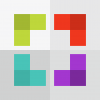Eko Hotel And Suits, Lagos, Nigeria
Event Details
Global reports (including COMCEC Financial Outlook of the OIC Member Countries 2017) indicate that the proportion of adults with bank accounts in the 23 (Low Income and Lower Middle Income Groups) of the OIC member countries stands at below 26.23%. A significant portion of the unbanked remain so due to voluntary exclusion from interest-based financial services.
Lack of non-interest financial services and/or deficiency of healthy non-interest ecosystems have potentially been impeding on economic growth, at least for countries with significant demand for such options
Furthermore, according to World Bank Global Financial Development Report 2014, Shari‘ah-compliant financial products and instruments can play a significant role in enhancing financial inclusion among Muslim populations. (COMCEC Financial Outlook 2015)
Financial inclusion is dependent upon adequate infrastructure, especially transport systems, power, and telecommunications. With many African countries including Nigeria constantly being challenged with meeting infrastructure demand, sourcing alternative funding becomes ever more crucial. Islamic finance alternatives have provided significant growth in infrastructural development in the Middle East and South-East Asia. This success has also been replicated through the use of Sukuk in the non-Muslim countries such as the UK, South Africa, Hong Kong, Luxembourg, and Germany, with compliant Public-Private Partnerships (PPPs) projects in Djibouti, Eritrea and most recently, Senegal.
Theme: Infrastructure Finance, Sustainability and the Future of African Markets
